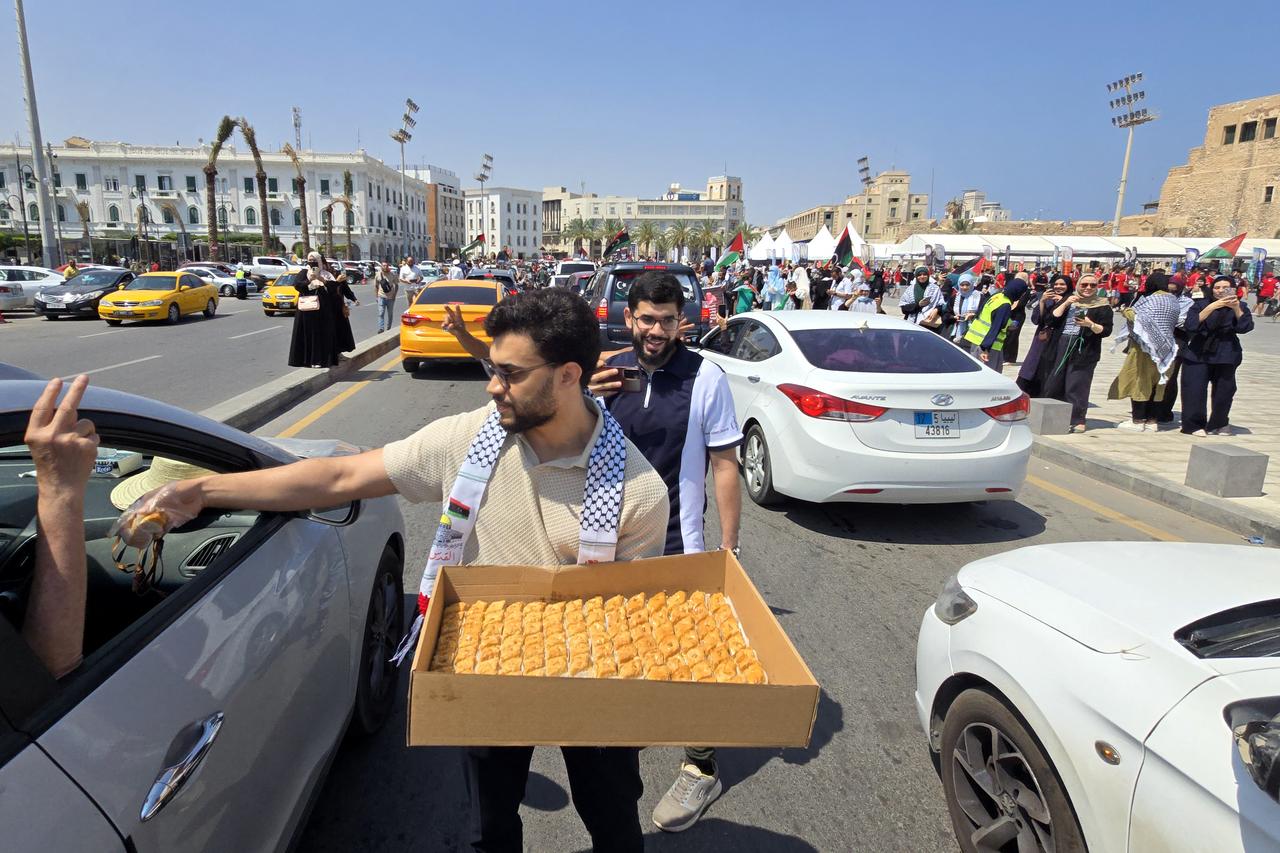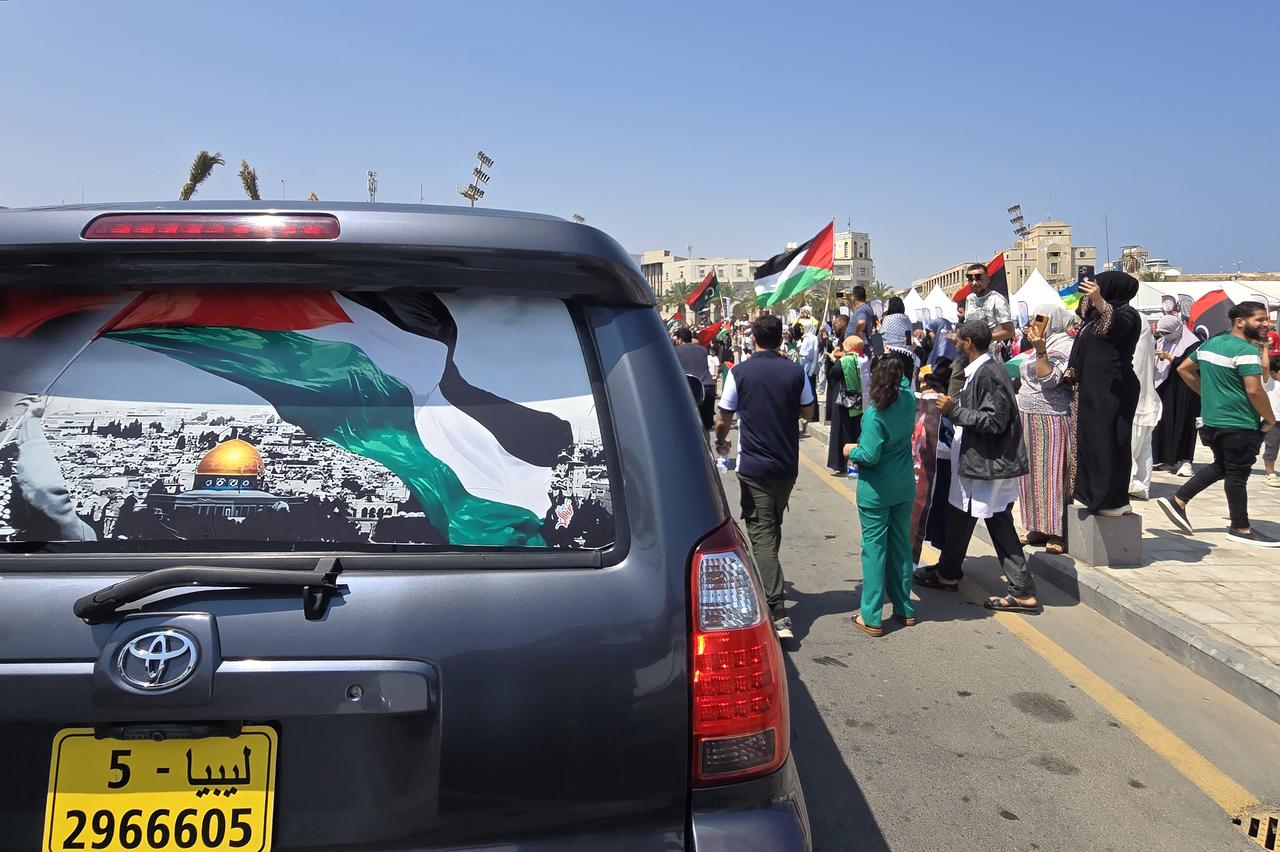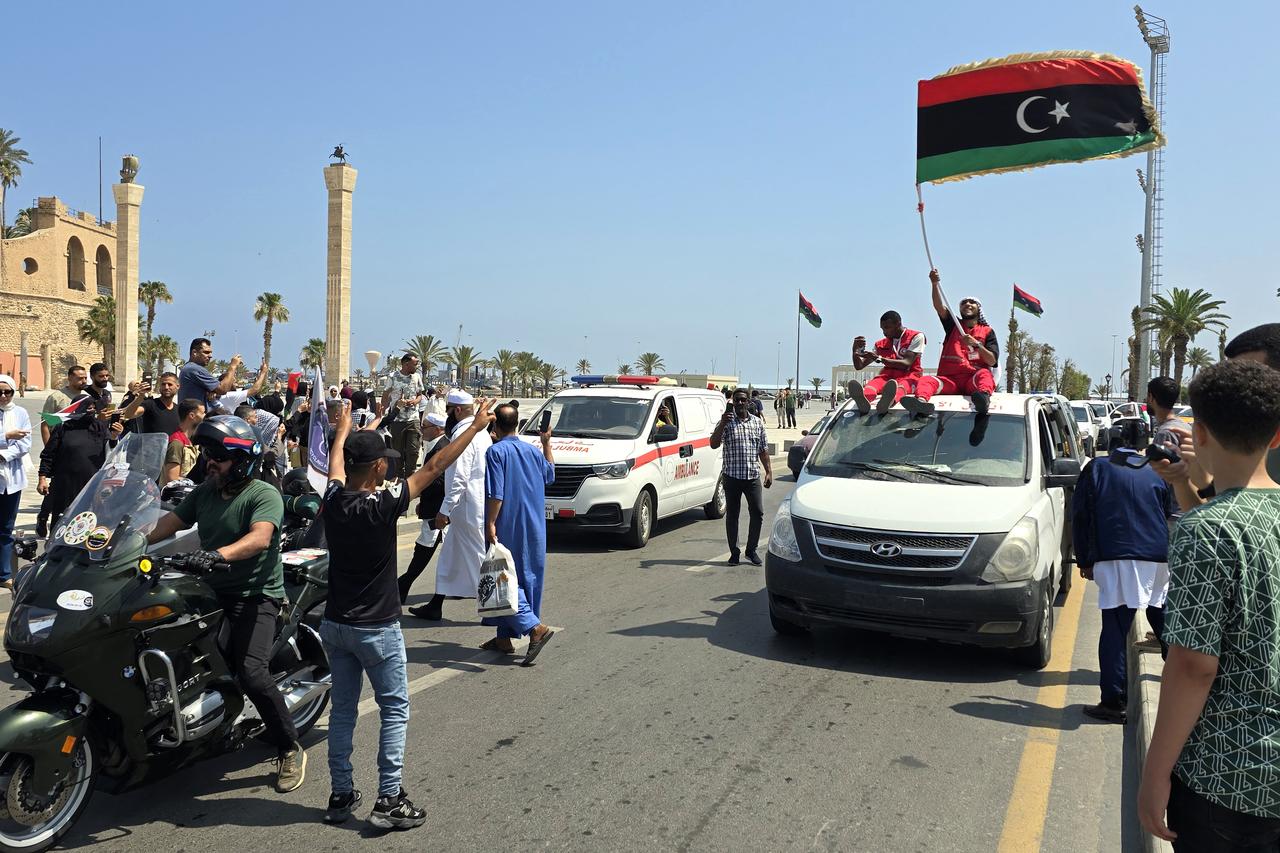
Hundreds of pro-Palestinian supporters from Tunisia, Algeria, and Morocco set out toward the Rafah crossing on the border with the Gaza Strip, as organizers of the "Caravan of Steadfastness" to break the siege on Gaza announced the beginning of the second phase of the journey upon entering Libyan territory.
The initiative, known as the Maghreb “Resilience Convoy” (Sumud), began its journey on June 9 from the Tunisian capital and reached the Libyan city of Zawiya by June 10.
The caravan set off on Monday morning, beginning its journey from Algeria, Tunisia, and Morocco, crossing Libya toward its border with Egypt, and then onward to the Rafah land crossing.
The convoy includes approximately 2,000 volunteers, 14 buses, and nearly 100 vehicles.
In a clear message, the nations reject silence and confront the siege imposed by the occupation and its political collaborators.

As the Maghreb "Caravan of Steadfastness" to break the siege on Gaza approached the city of Al-Zawiya, 51 kilometers from the Libyan capital Tripoli, official silence prevailed in Cairo regarding how to handle the convoy.
Sources familiar with the matter told Asharq Al-Awsat that Egyptian authorities have not yet decided on whether to allow the caravan to pass through or not.
While sources said the position on how to handle the convoy “has not yet been decided” due to the sensitivity of the matter, they believe “the caravan will likely not be allowed to enter, especially since its organizers know that the crossings to Gaza are closed and Israel will not permit their entry, raising questions about the true purpose behind organizing the convoy,” according to the sources.

Although no official objection has been expressed by the Egyptian authorities, state-aligned media launched a widespread attack on the caravan, with some accusing it of being a “political stunt” aimed at embarrassing the government. Some TV presenters even described the caravan as a “ticking time bomb.”
Meanwhile, informed Egyptian sources stated that the caravan poses significant challenges to the authorities in Egypt. Firstly, entry for foreign individuals requires prior visas, and the large number of people, whose affiliations and intentions are unknown, complicates the security situation.
Additionally, allowing them to enter and cross Egypt from west to east over a distance exceeding 700 kilometers presents major logistical and security challenges for the security apparatus.
Heitham Badr, a participant in the caravan, told Asharq Al-Awsat that “the goal is not to enter Gaza, and this is not a humanitarian aid convoy. The aid is already piled up in huge quantities at the Rafah crossing. The objective is to break the siege on aid entry through popular pressure at the border.”
“Before the caravan’s departure, the Tunisian authorities and the Libyan and Egyptian embassies in Tunisia were notified. The response from the Libyan and Tunisian sides was positive and encouraging, but the Egyptian embassy has not responded yet,” he confirmed.
The initiative comes as part of global movements trying to deliver aid to more than two million Palestinians who are dying of hunger, according to the organizers of the convoy.
These ground movements coincide with Israel’s seizure of the international activists’ ship, Madleen, which was also attempting to break the siege on Gaza. The occupation forces attacked the vessel and deported everyone on board.